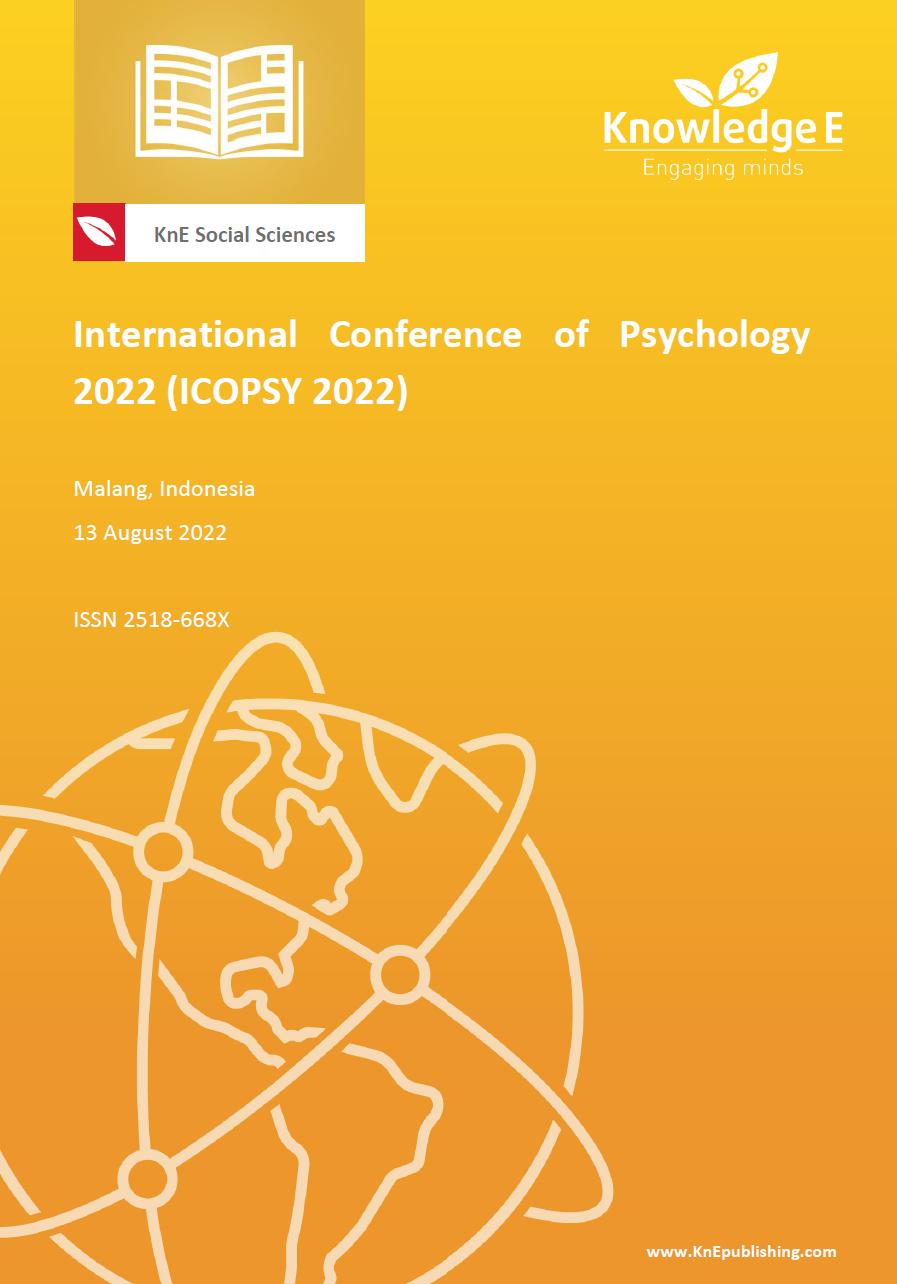The Effect of Emotional Quotient and Adversity Quotient Toward the Anxiety of Facing Corporate work on Final Year Students of Faculty of Psychology UM
DOI:
https://doi.org/10.18502/kss.v7i18.12385Abstract
The purpose of this study is to determine the effect of emotional quotient and adversity quotient on the anxiety of facing corporate work in final-year students of FPsi UM. This research is conducted with a quantitative approach with the type of correlational description. The criteria of this research population included active students of FPsi UM and in the class of 2018 or above (262 people), and after calculating through the Slovin formula the number of people in this study were 158. This research was collected using a Likert scale (the emotional quotient scale, the adversity quotient scale, and the anxiety scale to face the corporate work), and all three tested validity using Pearson’s product-moment technique. The reliability of this research scale was stated using the Alpha Cronbach technique with subjects that matched the population criteria of 30 respondents. This study was analyzed using descriptive analysis and categorized using absolute norms. Hypothesis testing using multiple linear regression with the result of the F-test (p <.05) showed that there was a significant effect of simultant emotional quotient and adversity on the anxiety of facing corporate work where R square is 46.2%. Suggestions for undergraduate students that they can do are to improve their emotional quotient (learn to control emotions and moods) and adversity quotient (learn to admit mistakes and control themselves in difficult situations).
Keywords: emotional quotient, adversity quotient, anxiety of facing the corporate work
References
[2] Dalyono M. Psikologi Pendidikan. Bandung: Rineka Cipta; 2012.
[3] Goleman D. Emotional intelligence: Why it can matter more than IQ. New York: Bantam Dell; 2012.
[4] Greenberger D, Padesky CA. Mind over mood. 2nd ed. Change how you feel by changing the way you think. New York: Guilford Publications; 2015.
[5] Handayani T. Relevansi lulusan perguruan tinggi di Indonesia dengan kebutuhan tenaga kerja di era global. Jurnal Kependudukan Indonesia. 2015;10(1):53-64.
[6] Hanifa Y. Emotional quotient dan adversity quotient dengan kecemasan menghadapi dunia kerja. Psikonorneo: Jurnal Ilmiah Psikologi. 2017;5(1):25-33. http://dx.doi.org/10.30872/psikoborneo.v5i1.4327
[7] Mayer JD, Salovey P. Emotional development and emotional intelligence: Educational implications. Sluyter DJ, Salovey P, editor. New York: Basic Books; 1997.
[8] Rachmady TMN, Aprilia ED. Hubungan adversity quotient dengan kecemasan menghadapi dunia kerja pada freshgraduate University Syiah Kuala. Jurnal Psikogenesis. 2018;6(1):54-60. https://doi.org/10.24854/jps.v6i1.632
[9] Stoltz PG. Adversity Quotient Mengubah Hambatan Jadi Peluang. Jakarta: PT. Gramedia Widiasarana Indonesia; 2005.
[10] Waqiati HA, Hardjajani T, Nugroho AA. Hubungan Antara Dukungan Sosial dan Efikasi Diri dengan Kecemasan Menghadapi Dunia Kerja pada Penyandang Tuna Daksa. Jurnal Ilmiah Psikologi Candrajiwa. 2013;2(1):1-12.

